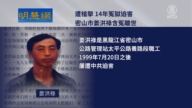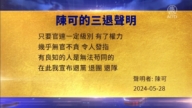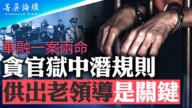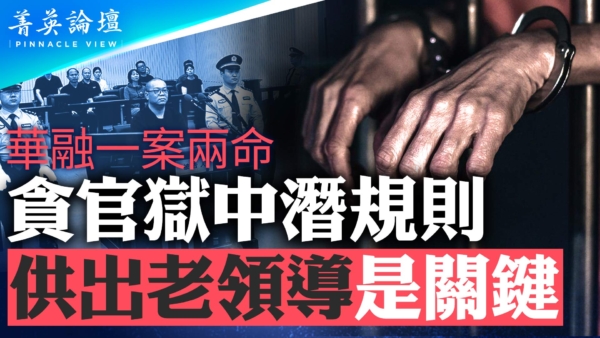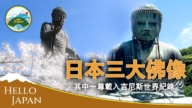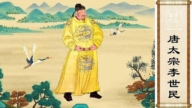【新唐人2014年06月18日讯】俄罗斯纪念碑人权组织近期组办了一场有关阿尔巴尼亚问题的国际研讨会,会上主要讨论了如何看待过去共产党政权政治迫害的历史,如何清除共产主义污垢,以及对政治迫害的受害者进行赔偿等问题。一些学者在会上指出,虽然阿尔巴尼亚组建了共产主义罪行研究所,但在清除共产主义污垢方面做得还是不够令人满意。
与所有共产党执政的国家一样,在斯大林的坚定追随者——前阿尔巴尼亚共产党党魁霍查(Hoxha),领导共产党的几十年中,阿尔巴尼亚人民经历了无数血腥、恐怖和暴力。有30%的人遭受了政治迫害和各种清洗。
最新调查结果显示,在阿尔巴尼亚,未经法院审判就被秘密处决的人,多达1万3千人,其中绝大多数人的尸骨至今不能被家属们找到。
此外,共产党的斗争哲学也在阿尔巴尼亚共产党内体现的淋漓尽致,几乎所有与霍查“并肩作战”的阿尔巴尼亚共产党高层党魁,都在内部权力斗争中,被“清洗”掉。
旅德政治学家仲维光:“霍查对于民众的迫害,我们每一个经过文化大革命的人都有所体会,那个时候在1966年中国最黑暗的年代,阿尔巴尼亚是中国最友好的朋友。因此霍查和中共一样,也是一位最典型的斯大林主义者,它们都是建立在对民众迫害的基础上的。大家可以看看共产党人对于它们内部党派斗争的残酷,你就明白它对于民众一定会更加残酷、更加血腥。”
随着东欧共产党国家的相继解体,阿尔巴尼亚也没能例外,但是当时的执政者担心自己会像罗马尼亚共产党党魁齐奥塞斯库一样,被人民就地处决,而不得不主动放弃政权。
仲维光:“阿尔巴尼亚不会没有持不同政见者,只不过是由于它的残酷决定了持不同政见者的声音微弱。这其实和中国是一样的,由于中共的残酷,中国在80年代基本上没有持不同政见者发出声音的地方,只有共产党内所谓改革派的声音。而改革派,其实就是为了救共产党,所以在中国89年的时候,并没有有勇气的、有影响的异议人士能够站出来。”
学者们指出,与东欧其他前共产党国家相比,阿尔巴尼亚在清算共产主义罪行、清除共产主义污垢方面做得并不让人满意。这是因为在1990年阿尔巴尼亚结束了长达48年的一党专制后,共产党权贵依然可以继续留在政府部门,甚至摇身一变,成为了阿尔巴尼亚社会党。这种不彻底的转型,就导致了阿尔巴尼亚在成为民主国家之后,并没有迎来预期中的经济和政治上的迅速改善,而是在很长一段时间陷入政党之间的权力纷争。
仲维光:“我认为无论它换了什么样的党的名义,首要的一定是清查历史,清除历史。这样才能够防止这个党在现在挂羊头卖狗肉。我认为在东欧很多国家出现的混乱的现象,都是因为这些前共产党人变化的不彻底,或者说它们自己对于以前没有认识,或者说这个社会对于它们的监督不够,因此使得这些人在向民主社会的变化过程中能够浑水摸鱼。”
旅居德国研究集权社会的权威学者仲维光指出,中国大陆直到99年之后,民间才开始出现不同的声音,尤其在2004年《九评共产党》发表以后,越来越多的大陆民众开始认清了中共的本质。而在这之前,那些党内所谓的改革声音,对于共产党来说,都不会发生根本的变化,只是推延历史的发展。
仲维光表示,阿尔巴尼亚给中国人的教训就是,只有彻底抛弃共产党——退党,才是改变中国最根本的方法。
采访编辑/张天宇 后制/陈建铭
Albania, a Lesson for the Chinese.
In a recent meeting in Moscow held by the NGO Memorial
Human Rights Center, former Communist regime Albania
was discussed: how to face the history of political persecution,
how to clean the debris of Communism, and
how to compensate victims of the political persecution.
Scholars said in the meeting that setting up research into
Communist crime is not enough to completely
clean out the remains of communism in Albania.
Like the other Communist regimes, Albania had
experienced bloody terror and violence under the leadership
of Hoxha, the firm follower of Stalin.
Thirty percent of Albanians were politically persecuted
or cleansed.
Voice of America quoted scholars in the meeting,
whose latest survey showed as many as 13,000 Albanians were
secretly executed without trial.
The whereabouts of their remains unknown to this date.
In addition, the Communist struggle philosophy was vividly
displayed in Albania.
Hoxha’s comrades at the Central were nearly all “cleansed"
in the internal power struggle.
Zhong Weiguang, political scientist:
“The persecution Hoxha conducted was very familiar to us,
who have been through the Cultural Revolution.
In the darkest era of China, 1966, Albania was the dearest
friend of China.
Hoxha was one of the most typical Stalinists.
Like the CCP, they were built on the persecution of the people.
The cruel internal party struggles demonstrate that the people
would only get even more brutal and bloody violence."
The collapse of Eastern Europe caused the Albania leader
to resign in fear of the same fate as Romanian
Communist leader Nicolae Ceausescu-execution
by the people on the spot.
Zhong Weiguang: “Albania did not have political dissidents.
The cruelty had made dissident voices weak.
It was the same in China. In the 80s, there were no voices
from dissidents, but only reformists from within the Communist
Party, who were merely trying to save the CCP.
That is the reason why in 1989, there were no dissidents
of courage and influence."
Scholars in the meeting mentioned that, compared with other
former communist countries in Eastern Europe,
the effort of Albania to settle communist
crimes has been unsatisfactory, reported the VOA.
In 1990, Albania ended 48 years of one-party dictatorship
by the Communist Party.
However, the elite party members continued to work
in government and became the Albanian Socialist Party.
This incomplete transformation of the democratic Albania
is believed to have resulted in slow improvement in economy
and politics.
The country remains in prolonged power disputes
among political parties.
Zhong Weiguang: “I believe, regardless of the ruling party,
the priority is to understand history in order to prevent
the replacing party from repeating the same mistake.
I think the chaos in much of Eastern Europe has been caused
by the incomplete transformation from former Communism.
It could also be said that in fact, they have not learned about
their own countries.
The societal supervision has not fully functioned.
In the transformation into a democratic society,
these people get to fish in troubled waters."
Zhong Weiguang is an authoritative figure in totalitarian
research, currently living in Germany.
He says that different voices were not heard in mainland
China until 1999.
Since the publication “Nine Commentaries on the Communist
Party" in 2004, many more people began to recognize
the nature of the CCP.
Prior to this, those so-called reformists were not expected
to cause any fundamental changes to the CCP,
but postpone the development of history.
Zhong Weiguang believes the lesson from Albania is that only
in complete abandonment of Communism —
and denouncement of the CCP,
will China have a fundamental transformation.
Interview & Edit/Zhang Tianyu Post-Production/Chen Jianming


